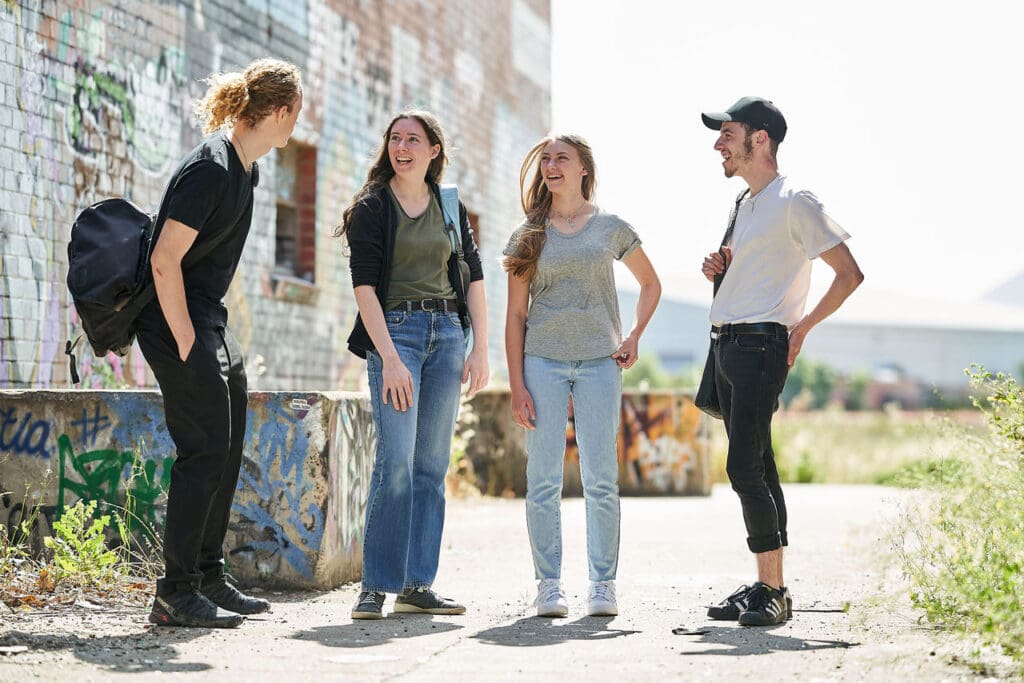Our research and projects
Orygen’s Youth IPS Centre of Excellence works with researchers, service providers, IPS specialists, and young people to drive innovation and development.


IPS Competency Framework
The Individual Placement and Support (IPS) Competency Framework underpins the IPS Workforce Development Framework developed for headspace by providing consistent guidance on the skills and competencies required to be an effective IPS specialist.

Trauma-Informed IPS for young people in Out of Home Care
Veritas House and Orygen’s youth IPS Centre of Excellence have collaborated to launch a Trauma-Informed IPS initiative for young people in Out of Home Care (OOHC) or facing homelessness in regional NSW.
Veritas has employed a team of trauma informed IPS vocational specialists who will work closely with the Clinical and Consultation Services, Personal advisors and Caseworkers, providing young people with individualised support to find and maintain work and study. Orygen will provide training and supervision for the trauma informed IPS vocational specialists and will evaluate the effectiveness of the trauma informed component of the program. Orygen acknowledge the Australian Government for funding this initiative through the Local Jobs Program. This support has been instrumental in bringing this crucial initiative to life and providing much-needed assistance to young people in the region.

IPS Workforce Development Framework for headspace
Orygen was engaged by the Department of Social Services (DSS) to support the expansion of IPS in headspace through the development and implementation of an IPS Workforce Development Framework. The IPS Workforce Development Framework aims to increase and retain IPS workforce availability, capacity, and capability to deliver IPS programs in headspace.

IPS and supported education
Supported education is an integrated program that provides individualised, educational support to young people (15-25 years) experiencing mental ill-health within and in collaboration with youth mental health care teams.
The supported education program – modified from IPS – primarily focuses on providing support for education attainment, particularly secondary education completion.
The education specialist works in partnership with schools, TAFES, and universities to assist young people to maintain or re-engage with education aligned with their longer-term goals.
The elements that make this project unique are focusing on secondary education engagement and intervening early to support youth outcomes.
From October 2019 to October 2020, 47.5% of young people who engaged with the IPS education specialist reported successful outcomes including re-engagement with school, linking to educational supports, and new education placement. This study suggests that engagement and maintenance of secondary education is a central goal in youth mental health services and can be successfully supported within an IPS-based educational recovery framework.
This project was funded by James Kirby Foundation, The Mantana Foundation for Young People, and the NSW Ministry of Health.

Implementing an IPS and vocational peer work program in integrated youth mental health settings
A pilot study co-located IPS workers and vocational peer workers within two integrated youth mental health services that provide support to clients aged 15–25 years. The program achieved positive vocational outcomes and good fidelity to the IPS model.

The Reduce trial
The Reduce trial is testing whether young people with first episode psychosis can make better functional recovery with less or no medication compared to those who are maintained on their medication.
All participants are offered IPS support as part of this project.
Reduce is expected to be complete later in 2023.
This project was funded by the National Health and Medical Research Council.

IPS for borderline personality disorder (BPD)
$1.3M has been invested to trial an evidence-based approach to supported employment and education services for young people with borderline personality disorder (BPD).
The trial, integrating IPS supported employment and education services with early intervention for BPD, will test whether IPS will improve vocational outcomes for young people with BPD.
The study protocol for a randomised control trial was published in 2020 and made available via BioMed Central Ltd.

Individual Placement and Support for vocational recovery in first-episode psychosis: randomised controlled trial
146 young people attending Orygen’s Early Psychosis Prevention and Intervention Centre (EPPIC) for first episode psychosis were randomly assigned to receive either their usual treatment plus IPS, or treatment as usual without IPS.
Each group was reviewed at six-month intervals for a period of 12 months following the trial.
The results have been published in the British Journal of Psychiatry.



